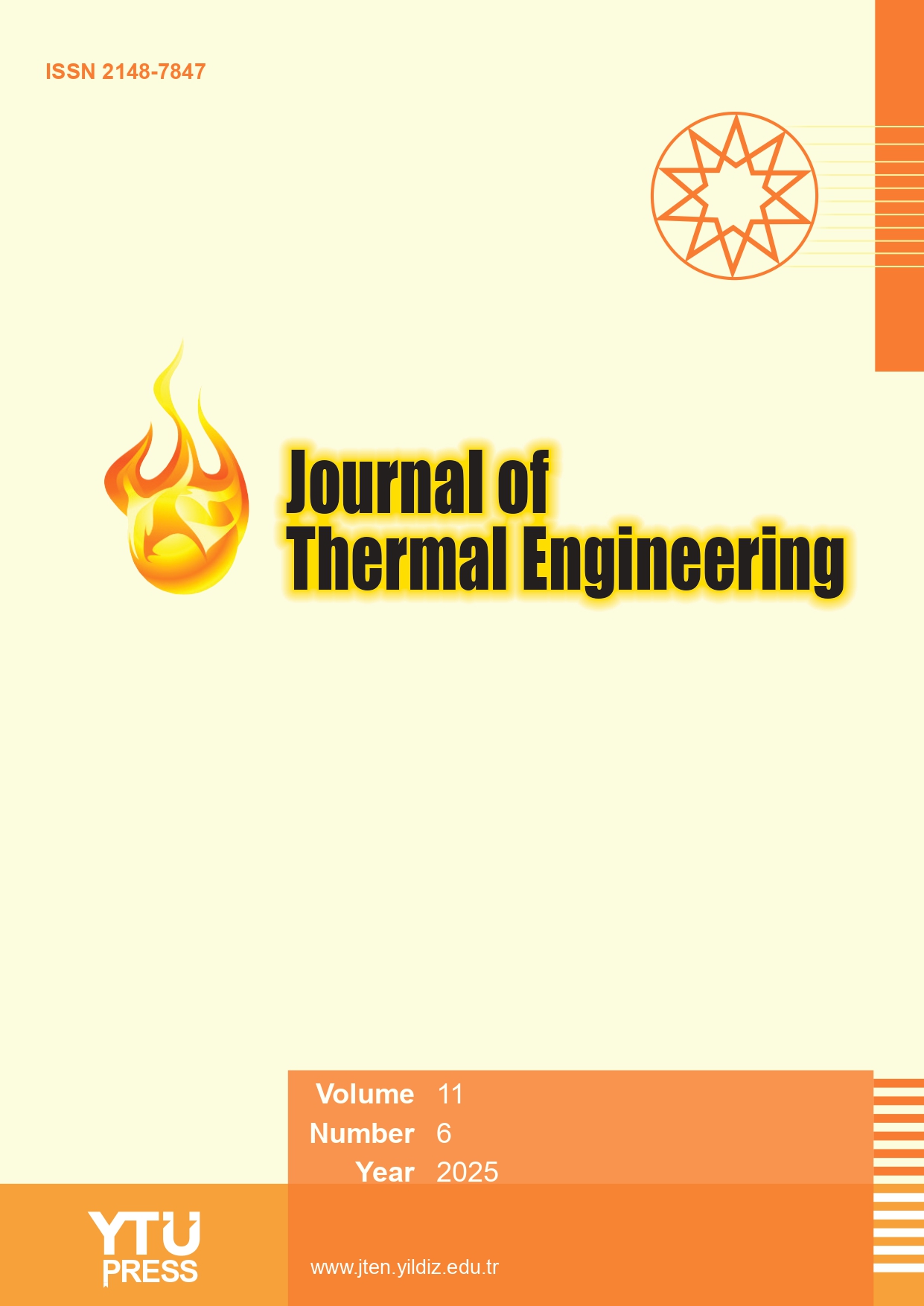Abstract
A case of underground long-term hot water storage is investigated numerically. The study is based on the unsteady two-dimensional Navier-Stokes equations in Boussinesq approximation applied to a closed cavern with time-dependent temperature boundary conditions on the walls. The problem formulated in a vorticity-stream function statement is solved by finite difference method (FDM) for high values of the Rayleigh number and for the Prandtl number of water. Streamlines, velocity and temperature fields are presented graphically for given moments of time. The evolution of the thermocline thickness in the mid-section of the cavern is slow and illustrates that the hot water zone occupies more than the half of the cavern even after 6 months period. The Nusselt number on the walls shows that the convective thermal losses are small and after certain period of time tend to decrease due to the diminished temperature difference at the walls. The influence of the fluid convection on the thermal losses is evaluated quantitatively, showing high seasonal thermal efficiency of the insulated hot water storage.



















